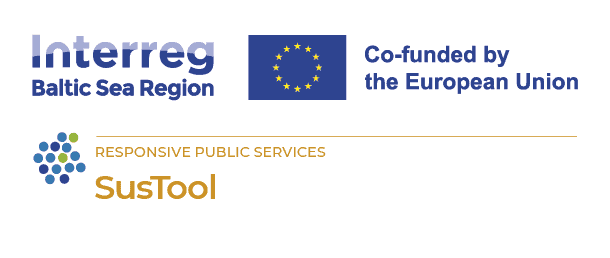
Sustainability in Business: From Buzzword to Measurable Strategic Value
07 November 2024
Sustainability has, in one way or another, become an integral part of a modern organization. Increasingly, it is no longer just a trendy term or moral commitment but a measurable activity that companies can undertake to create tangible value—not only for themselves but also for the environment.
With the European Union introducing new, more specific sustainability reporting standards, this activity will become more transparent: better measured, easier to compare, and far less subject to manipulation. Lithuania’s digitech association Infobalt, along with international partners and decision-makers, is developing ESG Tool – a free tool, which will help companies manage sustainability indicators more efficiently, prepare sustainability reports, and comply with new EU accountability standards.
Accountability Benefits Businesses
TeleSoftas, an international IT services company based in Lithuania, views sustainability as a strategic activity and does not shy away from regulation. Instead, it sees it as an opportunity to learn best practices and improve its operations.
“Sustainability is somewhat like the tax system. Everyone understands that paying taxes is necessary for countries and even businesses to exist. But, if taxes weren’t mandatory, I wonder how many would pay them voluntarily,” says TeleSoftas CEO Šarūnas Putrius. “It is similar with sustainability—it’s clearly necessary, but it’s easy to overlook unless you’re required to focus on it.”
According to Putrius, TeleSoftas has long prioritized sustainability initiatives. EU-wide sustainability regulation has encouraged the company to review its practices, especially in social and corporate governance areas, setting new sustainability-related goals, such as refining criteria for allocation of the support, code of conduct initiatives, a whistleblowing policy, and more.
The Importance of Social Sustainability in Business
“For TeleSoftas, sustainability is a strategic advantage,” says Putrius. “We were among the first to invest in sustainability when it was still a new thing. Now it is the foundation of our strategy. As a professional services company, our business revolves around people: our employees and clients.”
He emphasizes that the social aspect of sustainability has always been a core part of the company’s strategy.
Actions like employee surveys, learning and wellness programs, collaboration with universities, volunteer projects, and sponsorships contribute significantly and measurably to employee engagement and productivity, which later reflects in business results.
“High employee engagement, more efficient governance, and improved client loyalty are directly linked to sustainability initiatives,” he says.
Other aspects of sustainability, such as governance and environmental protection, are also important to the company, both as a moral commitment and as a means of creating value.
“Our goal is to grow ethically and create value not only for our business but also for society,” states Putrius.
How to Measure Sustainability?
One of the critical conditions for sustainability success is the ability to measure it. A business that tracks its sustainability indicators can more easily see where improvements are needed and allocate resources more effectively.
However, this can also pose a challenge. Accountability standards are necessary but it is quite a complex new regulation that has to be implemented.
Infobalt, along with international partners and decision-makers, is developing a prototype of a new sustainability accountability – ESG Tool. It will help organizations reduce the complexity of implementing EU sustainability accountability requirements and evaluate their sustainability metrics more easily.
Putrius views these tools positively.
“Sustainability is a broad concept that encompasses almost all areas of an organization. Therefore, tools and assistance for businesses aiming to measure their sustainability outcomes are very welcome. They save an organization’s time and allow more of that time to be devoted to actual sustainability initiatives rather than tracking them,” he emphasizes.
In the view of the TeleSoftas CEO, mandatory sustainability regulation will push more companies to adopt responsible business practices, ultimately benefiting everyone—both businesses and society.






